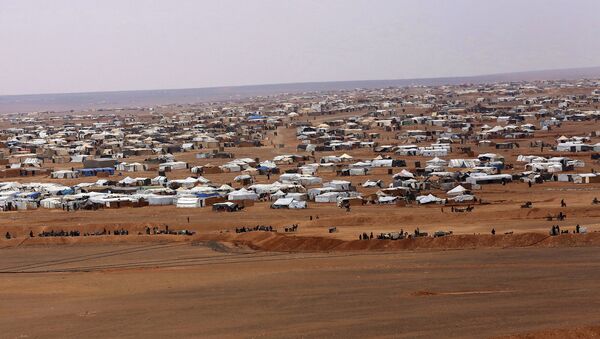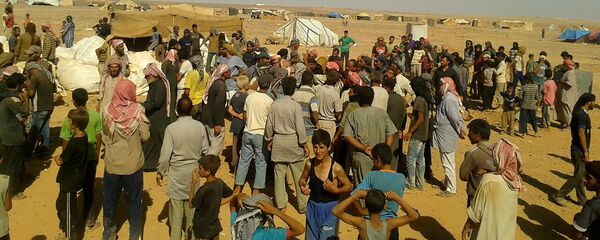"In accordance with the 1 March decision made at the meeting of the Russian-Syrian Joint Coordination Committee for the return of refugees, in order to prevent a humanitarian catastrophe in the Rukban refugee camp, bus convoys were formed and sent to the Jleb checkpoint for the voluntary and unhindered return of Rukban camp residents from at-Tanf to the places of their permanent residence", Solomatin said.
READ MORE: Militants Continue to Prevent Refugees From Leaving Rukban Camp — Russian MoD
Solomatin added that "no response has been received from the American side to allow the passage of the humanitarian convoy and guarantee the safety of its movement" in the 34-mile zone around the US base in at-Tanf.
Solomatin also added that as of 28 February, a total of 224,740 Syrian refugees returned to their home country.
The US Department of State called Friday on Russia to coordinate efforts on evacuating refugees, State Department seputy spokesperson Robert Palladino said in a statement, adding that "Unilateral Russian initiatives, not coordinated with the UN and regional parties, do not meet these standards".
The U.S. and @UN are ready for coordinated efforts on safe, voluntary, informed departures for those who wish to leave.
— Robert Palladino (@StateDeputySPOX) 1 марта 2019 г.
However, the Russian Center for Syrian Reconciliation stressed earlier that the entire information was communicated to Ayaki Ito, the UN Refugee Agency’s envoy to Syria.
READ MORE: UN Ready to Immediately Send Aid to Syria's Rukban Refugee Camp — Top Official
Alexander Marchenko, a representative of the Russian Foreign Ministry, said Friday that Washington is delaying the relocation of refugees from the Rukban camp, as it aspires to organize convoys with international humanitarian assistance that will enable further existence of the camp.
In January this year, the World Health Organization (WHO) described people residing in the camp as "trapped", adding that they live "in deplorable conditions". Limited water supply, bitterly cold weather and poorly functioning health care facilities contribute to the rise of diseases, which include influenza, measles, tuberculosis and chronic respiratory diseases, the WHO stated.
READ MORE: Terrorists in Rukban Camp Use Civilians as Human Shields — UN Refugee Agency



